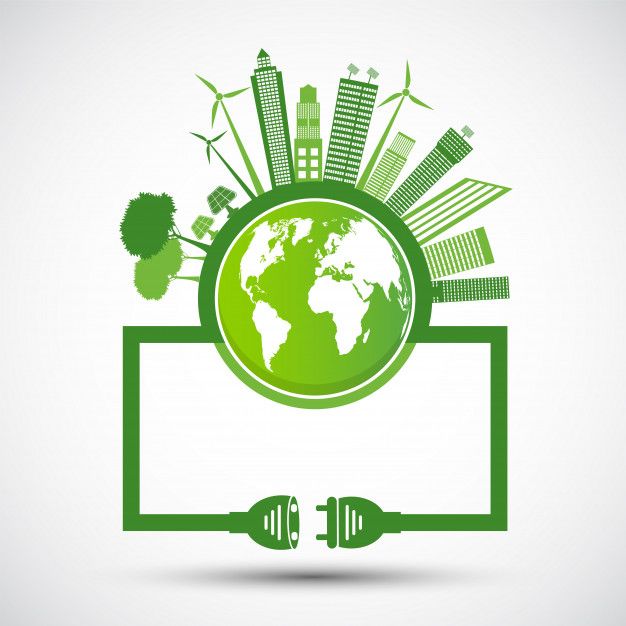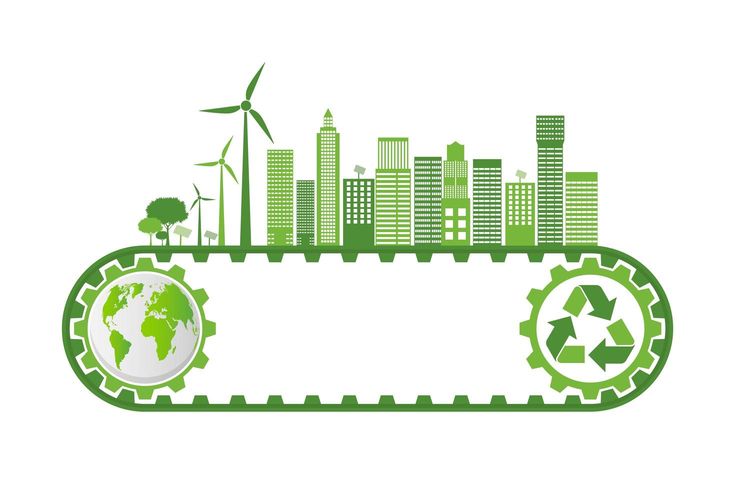Introduction:
Why is it said that lithium batteries can contribute to the realization of a sustainable society? With the widespread application of lithium batteries in electric vehicles, consumer electronics, and energy storage systems, reducing their environmental load has become an important research direction. The following strategies and technological advances have made lithium batteries have a smaller environmental load.
Electrification promotes energy transformation and reduces the use of fossil energy
The use of lithium batteries in electric vehicles, renewable energy storage, and smart grids has promoted the "electrification" of energy, thereby reducing dependence on fossil energy such as oil and natural gas. This shift is crucial to addressing climate change and reducing greenhouse gas emissions.
Key points:
Reducing fossil fuel consumption: Lithium batteries are the core energy storage units of vehicles such as electric vehicles (EVs), electric buses, and motorcycles. Electric vehicles replacing traditional fuel vehicles (especially internal combustion locomotives) can significantly reduce the consumption of fossil energy and reduce the emission of harmful substances such as carbon dioxide, nitrogen oxides, and particulate matter.
Energy structure transformation: Electrification is not only reflected in the field of transportation, but also in the field of energy storage. Through efficient battery energy storage systems, intermittent renewable energy (such as solar and wind energy) can be stored and released when demand peaks, which helps reduce dependence on fossil fuel electricity. Especially in remote areas, lithium batteries can promote the construction of distributed energy systems and provide a cleaner source of electricity.

Lithium battery material selection and low environmental load
Unlike traditional harmful metals such as cadmium, lead, and mercury, the materials of lithium batteries have a lower environmental load during production and use, which is an important reason why it is considered environmentally friendly. Although materials such as lithium, cobalt, and nickel are still mineral resources, their impact on the environment is less than that of toxic substances such as cadmium, lead, and mercury.
Key points:
No cadmium, lead, and mercury: Cadmium, lead, and mercury are common harmful substances in traditional batteries (such as nickel-cadmium batteries and lead-acid batteries). These metals exist in nature, but excessive mining, use, and improper waste disposal can cause great harm to organisms, especially to soil, water sources, and ecosystems. In contrast, the main raw materials of lithium batteries, such as lithium, cobalt, nickel, molybdenum, and manganese, not only have a lower environmental burden in manufacturing, but the mining and use of these elements have also had more environmental improvement measures in technology.
Lower environmental pollution risk: The materials used in lithium batteries (such as lithium, cobalt, nickel, manganese, etc.) have a much lower impact on the environment than cadmium, lead, and mercury. Although the mining process of these materials may still have a certain impact on the ecology (such as water pollution, land destruction, etc.), the negative impact on the environment can be significantly reduced through the improvement of recycling technology (such as recycling cobalt, lithium, etc.) and higher environmental protection standards for the mining process.
Green recycling technology: With the popularity of lithium batteries, recycling technology is also constantly improving. Recycling these valuable materials (such as lithium, cobalt, nickel, etc.) not only helps to reduce the demand for raw materials, but also effectively reduces the pollution of waste batteries to the environment.

Conclusion
The application of lithium batteries has made important contributions to the realization of a sustainable society, especially in promoting energy transformation, mitigating climate change, promoting a green economy and reducing environmental pollution. With the continuous advancement of technology, the efficiency, performance and environmental protection characteristics of lithium batteries will be further improved, which will provide more solid support for the world to achieve a low-carbon and sustainable future.
Heltec Energy is your trusted partner in battery pack manufacturing. With our relentless focus on research and development, coupled with our comprehensive range of battery accessories, we offer one-stop solutions to meet the evolving needs of the industry. Our commitment to excellence, tailored solutions, and strong customer partnerships make us the go-to choice for battery pack manufacturers and suppliers worldwide.
If you have any questions or would like to learn more, please don't hesitate to reach out to us.
Request for Quotation:
Jacqueline: jacqueline@heltec-energy.com / +86 185 8375 6538
Sucre: sucre@heltec-bms.com / +86 136 8844 2313
Nancy: nancy@heltec-energy.com / +86 184 8223 7713
Post time: Dec-05-2024
